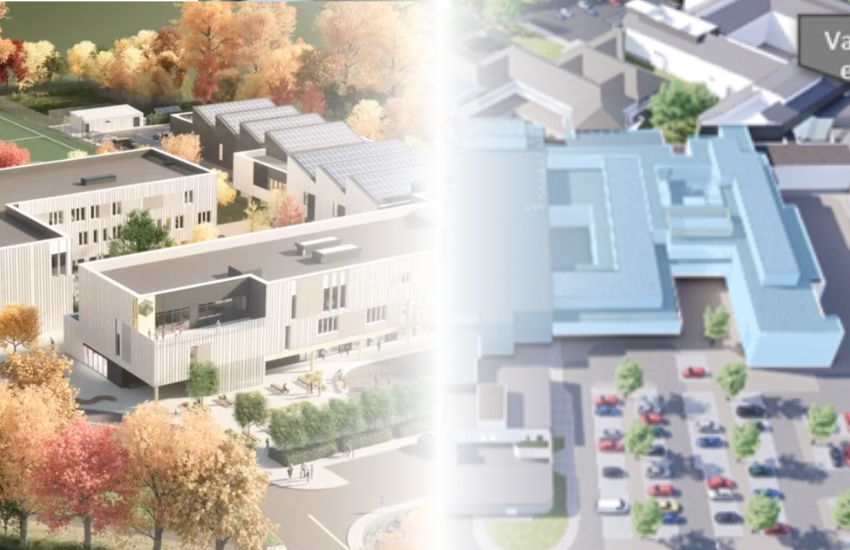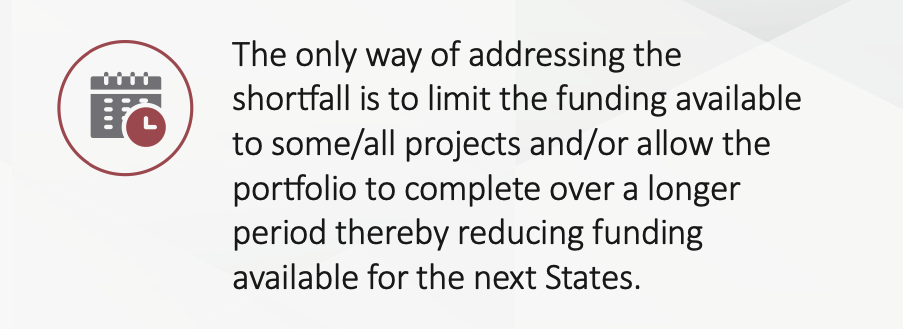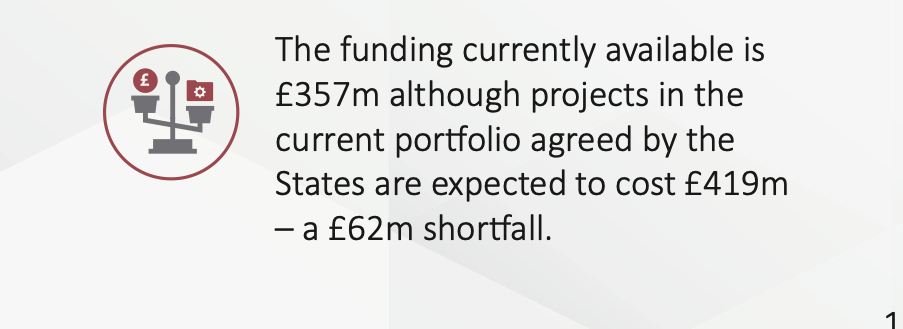


All of Guernsey's currently approved infrastructure projects have been deemed essential meaning work must go ahead, even though the island doesn't currently have the money to pay for them.
Policy and Resources says there are no "nice to haves" on the list - which includes things like the hospital modernisation, flood defences, the new post-16 campus, and work to modernise the Bridge - but the committee has also warned that there is a £62million shortfall in public funds to pay for these projects.
A Green Paper published yesterday outlines P&R's plans for the portfolio of essential infrastructure projects that have already been agreed by this States.
When deputies voted against increasing income tax by 2% in December, the P&R President warned that it would leave a shortfall in States finances meaning the approved projects could not be paid for meaning some would have to be scaled back or scrapped.
Now, P&R has concluded that can't happen as "all infrastructure projects already approved by the States Assembly are essential and should continue".
The Green Paper outlines a way forward - which includes extending the timespan of some of the works to spread out the costs.

The total costed sum of all of the projects already approved is around £419m but the States only has £357m to put towards it.
By spreading the costs over additional years it will be up to the next States to work out how to cover the final bills.
It also means the next States will already have a funding gap of around £150m before it even starts work to plan any infrastructure projects it wants to support, with projected needs pushing their capital outgoings to more than £1billion already.
The introduction of a Goods and Services Tax from 2027 should help to plug the gap though, says P&R.
Deputy Lyndon Trott has also said his committee is pushing ahead with plans for a "fundamental services review" in response to concerns raised by some deputies and members of the public.
This will mean looking at current public services and their cost, said the P&R President.

"During the Budget debate in November, our Committee made it unequivocally clear that we would need to review the portfolio of infrastructure projects if the Assembly was unable to agree the temporary increase in the personal rate of income tax," said Deputy Trott.
"We did not want to include such an increase in our Budget proposals but felt it would have been fiscally irresponsible to not do so. We knew there would be a significant funding shortfall that would restrict our ability to deliver the investment in infrastructure projects our island desperately needs. We now know that funding shortfall, between what we have available to spend on essential infrastructure and how much those projects are expected to cost, is £62m.
"The financial position of the island remains very challenging. The forecast for 2024 is a general revenue deficit of £20m. The Budget agreed by the States in November is for a general revenue deficit of £1m in 2025. We need to generate surpluses in order to fund much-needed infrastructure projects and we simply won’t have them in the short term, which means the States’ reserves are being used to fund capital investment - and to cover the deficits, meaning our reserves, our island’s savings, are reducing.
"However, having reviewed the portfolio of infrastructure projects the States has previously agreed, it is crystal clear to our Committee that all are essential and all must continue. There are no “nice to haves” here. We are talking about investment in post-16 education, flood defences, the regeneration of the Bridge and associated housing, and the crucial Phase 2 of Our Hospital Modernisation. The Alderney Airport Runway Rehabilitation project will be debated by the States in the coming months and our Committee considers that any solution must be contained within the original estimate of £24m to make it affordable.
"The only viable options are to restrict the funding available to schemes and/or allow the portfolio period to extend into 2027 to be able to use surpluses generated in those years to fund the commitments. It should be noted, however, that those surpluses will only be generated if the next States implements the tax changes this Assembly agreed during the Budget debate.
"We are progressing the capital portfolio on that basis and have published a Green Paper to explain the position clearly so that both this States, and the next, are fully aware of the position and the resultant impact of the next Assembly having less money available for any new infrastructure projects next term."
Major building projects review confirmed after Budget vote
States paves the way for GST package by 2027, rejects income tax rise
Comments
Comments on this story express the views of the commentator only, not Bailiwick Publishing. We are unable to guarantee the accuracy of any of those comments.